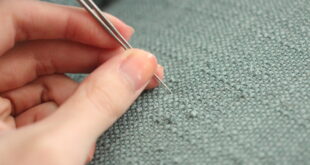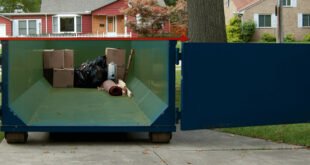Two lists govern the use of rental dumpsters – what can and cannot be placed in them. These lists center on rules and guidelines allowed by municipalities and other authority bodies for households and businesses to follow. Not adhering to these rules and guidelines for the acceptable use of dumpsters can lead to hefty fines being imposed on homeowners not to mention the danger improper disposal of hazardous materials and objects pose to the community and environment.
Before we begin, it is important to take the time to define what is considered hazardous. Hazardous materials are considered any material that pose a danger to human health or the environment if these are not handled appropriately.
With that said, let’s have a look at those unwanted items that you can legally throw into a dumpster and not lead you to encounter problems with the authorities, another reason I found a junk removal professional in my local area of Houston to do the dirty work!

List of acceptable items
General household items
Any unwanted general household items that include toys, clothing, wooden and plastic furniture and appliances such as drained refrigerators and washing machines are allowed to be disposed of in a dumpster.
Construction debris
Contracting waste left over after a home remodel or upgrade may also be placed in a dumpster so long as it is not too heavy or too big to be placed in it. Items in this category include: carpeting, tiles, roofing materials, cabinetry, stone and brick, kitchen and bathroom fixtures and asphalt.
Garden waste
Trees (depending on size and type), leaves, plants, shrubs and storm debris can be safely disposed of.
Also allowed (depending on locality) are:
- Alkaline batteries
- Aerosol cans (hairspray, perfumed body sprays, non-stick cooking sprays) provided they are empty
- Bed mattresses
- Camping gear
What you should NOT put in a dumpster
A wide variety of materials are included on this list, from corrosive and explosive to poisonous and flammable. Examples of materials and items best to leave out of dumpsters include: syringes, medication, paint, pesticides, printer ink, motor oils and fuels, furniture (upholstered) and certain electronic equipment. If you can answer the question – can this catch fire, explode or is it toxic – with a yes, then it is generally a good idea not to throw it into a dumpster.

General rules to apply when using a dumpster
Use the right size of dumpster
Dumpsters are available in various sizes for the convenience of homeowners and business owners. If you are not sure of the exact dumpster size you need, it is best to call a reliable dumpster rental company and speak to a professional for advice.
Find out about additional local regulations
It is important to bear in mind that rules and regulations governing the use of dumpsters may vary according to the restrictions imposed by different municipalities and states. It would be worth your while to find out about any additional restrictions that apply in your local area before you discard those items you are not so sure of.
Donate or recycle before discarding
You may want to consider donating any items that are still in working order or that can be used by someone else to a charitable cause instead of throwing it away. Another worthy task is recycling materials where appropriate such as paper, cardboard, single-use plastics, aluminum cans and glass.
With the availability of different types of dumpster rentals suited to a particular purpose, it may at first be confusing as to which one to choose. This is when talking to a professional at weebblejunk about your unique waste removal needs may offer useful advice on how to ensure you dispose of waste responsibly, safely and legally.



